Aug
28
2009
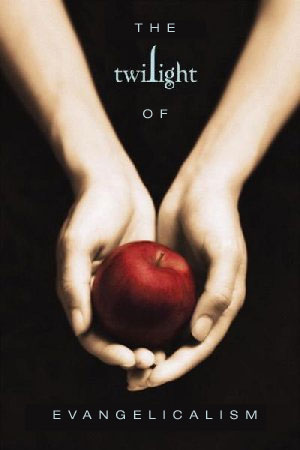
“If the academies turned out faithful women armed with Picture Bibles we would be better off than we are with you lot.”
Once upon a time, not far from here, there was a graphic designer who busted a gut for five years teaching the Bible in a local high school. He was committed to building a biblical worldview through the communication of the exciting, terrifying, comforting narratives of the Old Testament as a foundation for the gospel, to a generation starving for this stuff and filling the gap with movies and novels like Harry Potter and Twilight. After all, postmoderns love narrative.
Continue reading
6 comments | tags: Biblical worldview, Compromise, Culture, Evangelicalism, Gnosticism, Satan | posted in Biblical Theology, Christian Life
Jul
26
2009
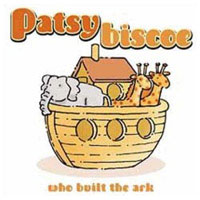
My friend Matt has been blogging about how postmodernism, with its openness to narrative, is a great opportunity for the gospel. But evangelicals need to sort themselves out first. Otherwise, to the world, they are just a bunch of Patsys. Patsy Biscoes that is.
Continue reading
4 comments | tags: Archaeology, Compromise, Gnosticism, Ideology, James Jordan, Liberal theology, N. T. Wright | posted in Apologetics, Biblical Theology
Jul
13
2009
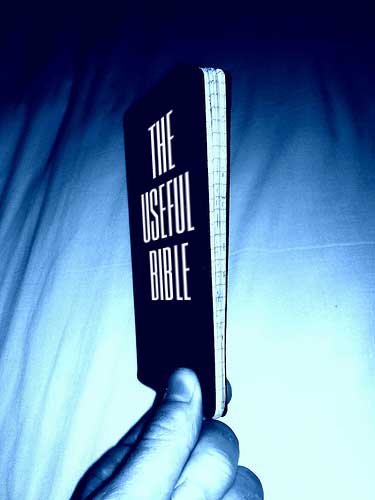
or A Thimbleful of Watery Bible Broth
The Modernist Bible is very thin. The Old Testament is a mix of myth and history, and Revelation is just a general picture book of the gospel’s work in the world (or a polemic against first century Rome). It boils down basically to some key statements by Jesus and the letters of Paul. And even here, there are problems. Evangelicals love Paul because he communicates like a Greek, but even evangelicals choke on some things he says.
Continue reading
2 comments | tags: Compromise, Duane Garner, Gnosticism, Philosophy, Theistic Evolution, Tim Nichols | posted in Biblical Theology, Creation
Jul
12
2009
…but slack on Creation.
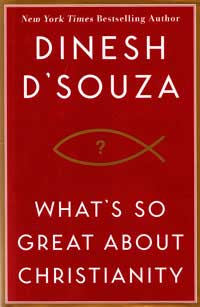 “What’s so great about Christianity? D’Souza gives this question a book-length answer, exploring Christianity’s effect on government, science, philosophy and morality, while answering the objections of atheists along the way. He also gives a warning: most of the West is living on the inheritance of the Christian culture handed down to it by previous generations, but the secular worldview is slowly eating away at the best things Western culture offers. Continue reading
“What’s so great about Christianity? D’Souza gives this question a book-length answer, exploring Christianity’s effect on government, science, philosophy and morality, while answering the objections of atheists along the way. He also gives a warning: most of the West is living on the inheritance of the Christian culture handed down to it by previous generations, but the secular worldview is slowly eating away at the best things Western culture offers. Continue reading
Comments Off | tags: Atheism, Augustine, Compromise, Irenaeus, Nietzsche | posted in Apologetics, Creation, Quotes
Jun
27
2009
or Silencing the Higher Critics

Yet more on literary analysis of the Bible as a ‘terrible marvel‘; a review of two books. As Warren Gage has commented, we are on the verge of a tremendously creative time in Biblical theology. But this to me seems also to be an element of scholarship returning home, older and wiser, from a wilderness of unbelief.
Genesis: The Story We Haven’t Heard
by Paul Borgman. Downers Grove, IL: Intervarsity Press, 2001. 252 pages.
The Literary Structure of the Old Testament: A Commentary on Genesis-Malachi
by David A. Dorsey. Grand Rapids, MI: Baker Books, 1999. 330 pages.
Reviewed by Timothy Paul Erdel, Ph.D., Archivist and Assistant Professor of Religion and Philosophy, Bethel College, Mishawaka, IN.
“I have been fascinated by the primal power of Old Testament stories for as long as I can remember. From my perspective, there is no clearer window on human character, no greater storehouse of hard and holy truths. Yet some tales are deeply disturbing. Phyllis Trible calls them ‘texts of terror.’ Even the most familiar passages may seem strangely distant. So I relish each time a preacher or teacher sheds new light on these ancient Hebrew narratives.
Continue reading
Comments Off | tags: Abraham, Babel, C. S. Lewis, Chiasm, Compromise, David A. Dorsey, Higher Criticism, Isaiah, Jeremiah, Literary Structure, Warren Gage | posted in Biblical Theology, Quotes
Jun
14
2009
A brilliant thought (I think) from shotgun over at the AV forum:
I’m currently reading Gary North’s commentary on Genesis, “The Dominion Covenant.” It is probably one of the most enlightening books I’ve ever read, especially in terms of economics.
Anyway, I ran across some ideas that might serve to savage any and all attempts to intertwine the Genesis account with modern theories of evolution. (Gary North doesn’t apply these conclusions in this way. This speculation is all Shotgun.)
Gary North says this:
Under covenantal dominion, cursed nature’s restraints are progressively lifted. (Pg. 84)
He claims earlier that the “Earth was never designed to be autonomous.”
It seems to me that those who would posit long periods of time before man arose (as man) are implying that the Earth (and nature without man) has some sort of autonomous purpose apart from man. Implicit then, in systems like those of Hugh Ross, is the assumption of an autonomous sphere of sovereignty allocated to nature.
This cannot be true since there is no neutrality. In seeking to critique theistic evolutionary models, then, we should be on the lookout for any implications of an autonomous wilderness.
6 comments | tags: Compromise, Dominion Theology, Economics, Gary North, Hugh Ross, Theistic Evolution | posted in Biblical Theology, Creation
May
2
2009
Peter Leithart writes:
Reflections on a class discussion earlier today about place, our connection to the ground, and gnosticism.
- Blood and soil are “powers” that can and have dominated human life, and caused lots of human misery.
- Jesus overcomes those powers. We are identified by water and feast, not by blood or color or place.
- YET (here’s where my thought is undeveloped): Jesus doesn’t just overcome and send the powers packing. He pacifies and reconciles powers; He turns them to the purposes of His kingdom (Col 1-2).
The dilemma: How to express the reconciliation of blood and soil without falling back into the old creation, and without going fascist? How to express Jesus’ pacification of “blood” without letting it usurp the place of the water, and how to express Jesus’ pacification of “soil” without letting it usurp the place of the feast?
Continue reading
Comments Off | tags: Atonement, Canaan, Communion, Compromise, Gnosticism, Herod, High Priest, Holy Place, Most Holy Place, nationalism, Nazirite, New earth, Nimrod, Peter Leithart, Worship | posted in Biblical Theology
Apr
18
2009
or A Marriage Made in…
The Bible is big on mediators. Adam’s role as faithful Showbread would link heaven and earth. He would be a god-man. Fulfilled by Christ, this is the liturgical role of a minister. He faces God as representative of the Bride, and faces the church as the representative of the Bridegroom. He is Solomon at the completion of the Temple dedication.
The ‘hell’ hybrids are the Land-beasts of the Bible. This is what Adam became, conspiring with Satan. It was an unholy alliance between God’s mediator and the Creation, in which the Creation called the agenda. The resulting peoples are hunters like Nimrod and Esau, wolves instead of shepherds, bloodthirsty children of the daughters of men.
Continue reading
Comments Off | tags: 666, AD70, Adam, Boaz, Compromise, Crystal Sea, Dominion Theology, Esther, Herod, Intermarriage, Joseph, Nero, Nimrod, Paul, Pilate, Revelation, Solomon, Table of Showbread, Temple, Totus Christus, Wormwood | posted in Biblical Theology, The Last Days
Apr
17
2009
The Third Trumpet
De-Ascension – the Temple judged
The third angel blew his trumpet, and a great star fell from heaven, blazing like a torch,
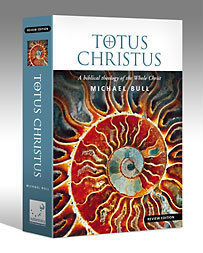 After the ascension of Christ, Satan was expelled from his “ministry” before God as the Accuser of man. Like the evil twin of the blazing torch that measured Abram’s sacrifices, he was then used by God to bring an end to the Covenant.
After the ascension of Christ, Satan was expelled from his “ministry” before God as the Accuser of man. Like the evil twin of the blazing torch that measured Abram’s sacrifices, he was then used by God to bring an end to the Covenant.
and it fell on a third of the rivers and on the springs of water. The name of the star is Wormwood. A third of the waters became wormwood, and many people died from the water, because it had been made bitter.
These first three trumpets concerned the Land (Judah), the Sea (the world empire) and the springs of water (the Temple). This same order began the song of ascension, Psalm 24:
Continue reading
Comments Off | tags: Babylon, Compromise, Esau, Herod, James Jordan, Numbers, Restoration, Revelation, Satan, Solomon, Wormwood | posted in Biblical Theology, The Last Days, Totus Christus
Apr
11
2009
Preach from the Bible, and from the Bible only. Again, does this need to be said? One thing’s for sure. The Bible is fascinating, disturbing, offensive, sweet, alarming, comforting, stretching, shocking, controversial, caressing, strengthening. No way are you and I that interesting. Let’s put the Bible front and centre and let it be itself and do its thing, whatever the impact. Submerging the Bible for the sake of our cool personas isn’t really cool at all. It’s a way of avoiding risk, chickening out.
Dr. R. Albert Mohler Jr
Comments Off | tags: Compromise, Preaching | posted in Quotes































